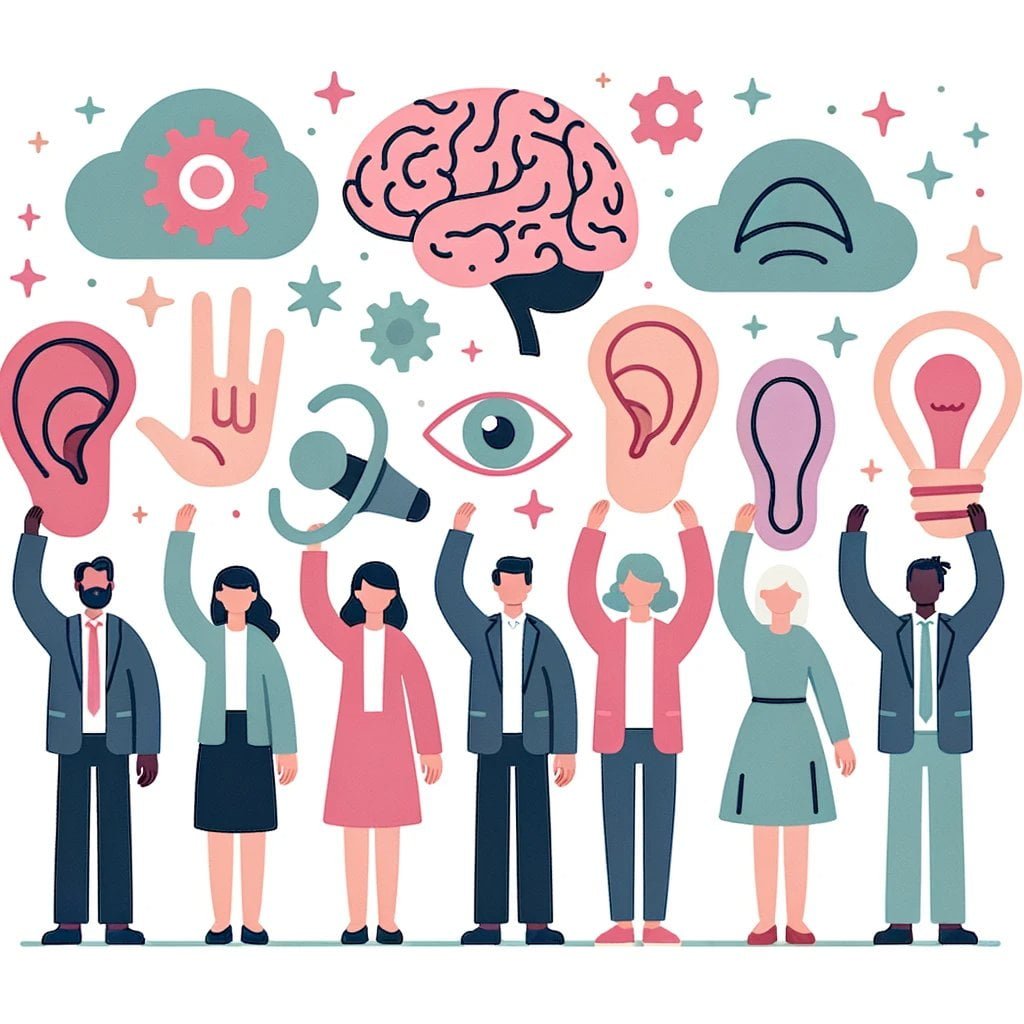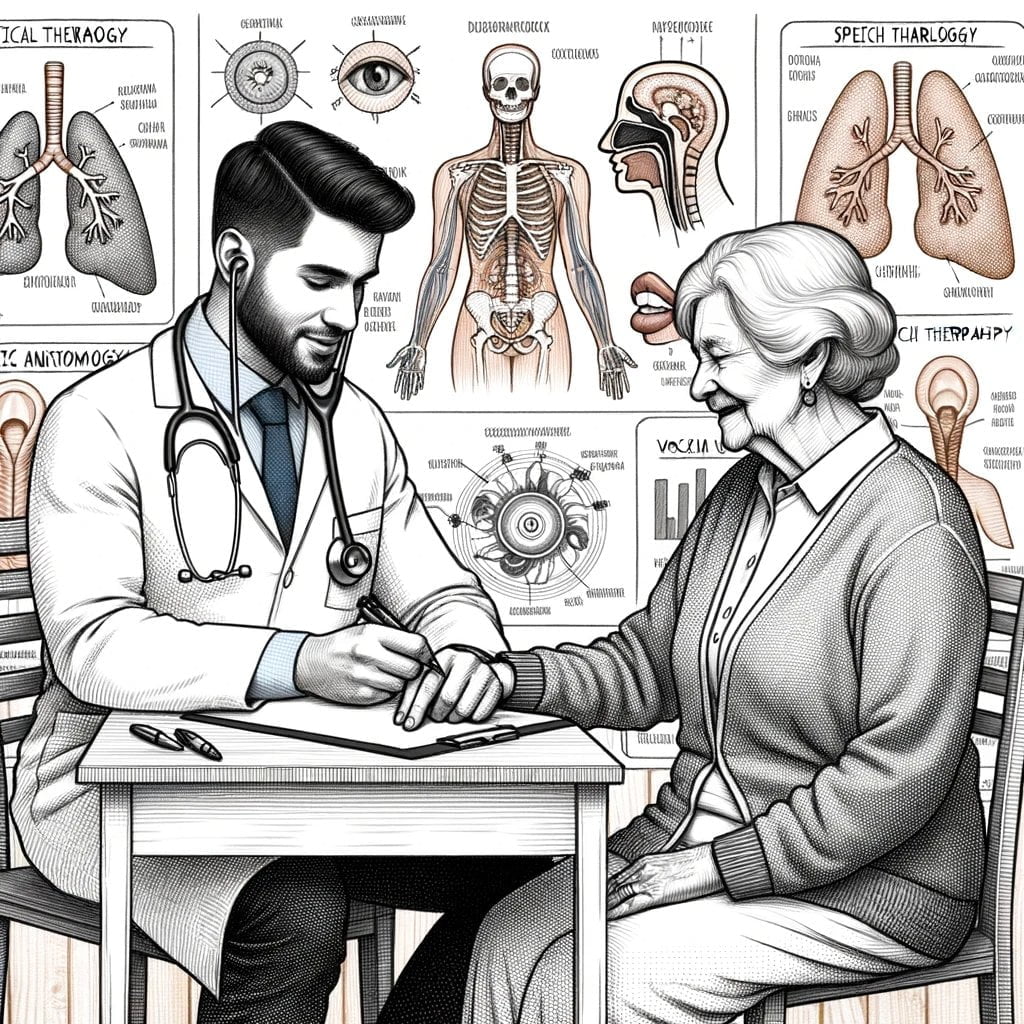Speech pathology can change lives by promoting effective communication. As an experienced speech-language pathologist, I am fascinated by the impact our profession may have on people with speech, language, and swallowing issues. Speech pathology helps people overcome communication issues and regain their voice through specialist expertise and a patient-centered approach. Discover speech pathology’s unique and revolutionary ability to empower communication with me.
Why do you love speech pathology?
As an experienced speech-language pathologist, I help people with speech, language, and swallowing issues. Speech pathology’s transforming power and impact on people’s lives have caught my heart and soul.
Working with people of all ages and from all walks of life
Working with people of different ages and backgrounds is one of my favorite things about speech pathology. Every person has a unique story, from children with developmental impairments to stroke survivors. Each case is unique, which makes my job interesting and rewarding.
Helping people improve their communication skills and confidence
Speech-language pathologists love seeing patients’ amazing speech and language growth. Helping a kid say their first words or an adult regain their voice is rewarding.
Finding new and innovative ways to help clients achieve their goals
I love discovering and using new methods and technologies to help my clients communicate. Speech pathology is always changing. Innovation is tough yet rewarding, whether it’s using assistance technologies or trying new communication approaches.
Working clinically to help people communicate as well as eat, chew, and swallow
I get to treat swallowing and speech issues as a speech-language pathologist. Helping those who have trouble eating, chewing, and swallowing is rewarding. Watching delight and freedom come with improved swallowing is rewarding.
Seeing the effects and progress of your work through the improvements made by patients
Seeing my patients’ development after my interventions is the most rewarding. These moments show how speech pathology can change a child’s pronunciation or an adult’s fluency. These instances remind me daily why I love my job.
Enjoying fast-paced and challenging workplace environments, meeting new people, and problem-solving
Speech pathology is fast-paced and difficult. New clients, evaluation issues, and therapy goals arrive daily. I thrive in this dynamic environment, pushing myself to evolve. I also get to know clients and their families, strengthen relationships, and change their lives by working with them.
Conclusion
Finally, speech pathology empowers people via better communication, which is why I enjoy it. I’m inspired by helping people of all ages and backgrounds, seeing therapy develop, and learning. Speech pathology changes lives and provides me with great delight. My love for speech pathology comes from my commitment to helping others find their voice.
Are you curious about the fascinating world of speech pathology? Dive into a treasure trove of speech pathology facts by clicking this link. Uncover amazing insights and gain a deeper understanding of this dynamic field. Embark on a journey of discovery and broaden your knowledge about the intriguing intricacies of speech pathology.
Applying extensive knowledge in phonetics, linguistics, and cognitive development
The transformative power of speech-language pathology drives me. My phonetics, linguistics, and cognitive development skills can alter lives by helping people find their voice and communicate. This piece will highlight how this information empowered my speech-language pathologist’s communication.
The Importance of Phonetics and Linguistics in Speech Therapy
Phonetics and phonology are crucial to speech therapy. I can identify and cure speech issues by understanding speech sounds and production. I can diagnose and target articulation and phonological issues using my phonetic expertise. This experience allows me to personalize therapeutic interventions to each patient’s needs and help them speak clearly. Phonetic and phonological analysis can help with language difficulties, as they commonly overlap in speech treatment [^1^]. By combining linguistics and speech therapy, I can assess and treat language effectively.
Cognitive Development and Communication
Cognitive growth affects communication, especially in youngsters. Understanding the relationship between cognition and language acquisition helps me develop cognitively appropriate therapy activities. By addressing cognitive development, I may create engaging, challenging, and supportive interventions for individual advancement [^2^]. I design language and communication therapy sessions that consider cognitive load using my cognitive development expertise. This individualized method boosts confidence and motivation, resulting in permanent communication improvement.
Language Teaching and Linguistic Knowledge
Language skills are vital for speech therapists and educators. I can support teacher training and stress linguistic understanding in the classroom by using my substantial linguistic knowledge. Understanding language structure and principles helps teachers teach phonetics, phonology, and pronunciation better. Empowering educators and children with linguistic knowledge enhances language development [^3^].
Speech Technology and Phonetic Knowledge
The merging of phonetics and phonology advances speech technology. I contribute to signal-processing research, auditory perception, and voice recognition systems with my expertise. Using phonetic information, I can improve speech technology for accurate and accessible interpretation of speech sounds for patients with speech problems [^4^].
The Transformative Power of Speech Pathology
When I think about my love for speech pathology and how it changes lives, I’m reminded of its transforming power. I help people overcome communication issues using my phonetics, linguistics, and cognitive development expertise. Every minor improvement, confidence boost, and communication milestone strengthens my commitment to this vocation. Each success story reminds me of the power of communication and the need to give everyone a voice.
I’ll boldly claim I adore speech pathology because of its transforming power when someone asks why. I use my phonetics, linguistics, and cognitive development expertise to help people find their voice, communicate, and connect with the world. Speech pathology is a journey of understanding, compassion, and the continuous pursuit of empowered communication, not just a vocation.
Belief in the Importance of Giving Everyone a Voice
I have seen speech pathology encourage people to find their voice as a speech-language pathologist. This profession goes beyond identifying and treating speech, language, and swallowing issues to help people communicate and express themselves. My passion for speech pathology stems from my belief in providing everyone with a voice.
The Benefits of Speech Pathology
Speech pathology has several benefits for patients and professionals. Explore some of these benefits:
Speech pathology aims to improve communication skills. Speech pathologists increase quality of life for all ages by addressing speech, language, and communication issues.
Specialization: Speech pathologists can specialize in articulation impairments, language delays, swallowing issues, and voice disorders. This specialization lets speech pathologists specialize and adapt interventions.
Addressing Literacy Challenges: Speech pathologists can improve literacy, especially for low-income people who may have language and literacy issues. Speech pathologists help people learn to read by focusing on language and phonological awareness.
Speech pathology training and practice include teaching. Speech pathologists teach communication, language, and speech skills to people, families, and professions.
Personal and Professional Growth: Speech pathologists can grow personally and professionally. Speech pathologists learn and improve by continuing their education and research, allowing them to deliver the best treatment to their clients.
Speech pathologists work with people of different ages and cultures, from infants to the elderly. This diversity enriches the profession and requires speech pathologists to tailor their interventions to each patient.
Voice health and advocacy are crucial to speech pathology. Speech pathologists diagnose and treat voice abnormalities and promote vocal hygiene and effective voice use in public speaking and daily conversation.
Speech pathologists can specialize in bilingualism around the world. Develop competence in this area to provide equal assistance to all children, regardless of language background.
Speech pathology stresses the importance of public speaking and good speaking abilities in life. Both clients and therapists need good communication skills to successfully communicate with and advocate for their clients.
Conclusion
Speech pathology can change lives greatly. The conviction that everyone should have a voice motivates me and many other dedicated experts in this industry. We help people overcome communication challenges and connect with the world through our expertise, experience, and reliability. Let’s keep promoting speech pathology’s revolutionary power and ensuring everyone can speak.
[Table: The Benefits of Speech Pathology]
| Benefit | Description |
|---|---|
| Improving Communication Skills | Enhancing an individual’s ability to communicate effectively |
| Opportunities for Specialization | Allowing professionals to specialize in specific areas |
| Addressing Literacy Challenges | Improving language and literacy skills |
| Teaching and Training | Educating individuals, families, and other professionals |
| Personal and Professional Growth | Expanding knowledge and skills through ongoing learning |
| Working with Diverse Populations | Adaptation to meet the unique needs of individuals |
| Voice Health and Advocacy | Protecting and maintaining vocal health |
| Equitable Services Through Bilingualism | Providing services to children from different language backgrounds |
| Importance of Good Communication Skills | Emphasizing effective speaking skills in various contexts |
FAQ
Question 1: What is the role of a speech-language pathologist in improving communication skills?
Answer: Speech-language pathologists diagnose and treat speech, language, and swallowing difficulties. They use their expertise in phonetics, linguistics, and cognitive development to help individuals achieve their communication goals.
Question 2: Can speech pathologists specialize in specific areas of the field?
Answer: Yes, speech pathologists have the opportunity to specialize in various areas such as pediatric speech therapy, adult speech therapy, fluency disorders, voice disorders, and more.
Question 3: How do speech pathologists contribute to improving literacy, especially for individuals of lower socioeconomic status?
Answer: Speech pathologists play a crucial role in improving literacy by identifying and addressing language and communication barriers that may hinder reading and writing skills. They provide interventions and strategies to promote language development, comprehension, and phonological awareness.
Question 4: Is teaching a significant aspect of speech pathology training and practice?
Answer: Yes, teaching is an integral part of speech pathology. Speech pathologists provide education and guidance to individuals with communication disorders, their families, and other professionals involved in their care. They also play a role in educating the community about the importance of communication and language development.
Question 5: How does working as a speech pathologist contribute to personal and professional growth?
Answer: Working as a speech pathologist offers continuous opportunities for personal and professional growth. It allows individuals to develop expertise in their chosen specialization, expand their knowledge through ongoing learning and research, and make a meaningful impact on the lives of their clients.
- Identify Black and White Snakes: Venomous or Harmless? - April 20, 2025
- Unlocking Potential: Origins High School’s NYC Story - April 20, 2025
- Period Quiz: Predict Your First Period - April 20, 2025


















